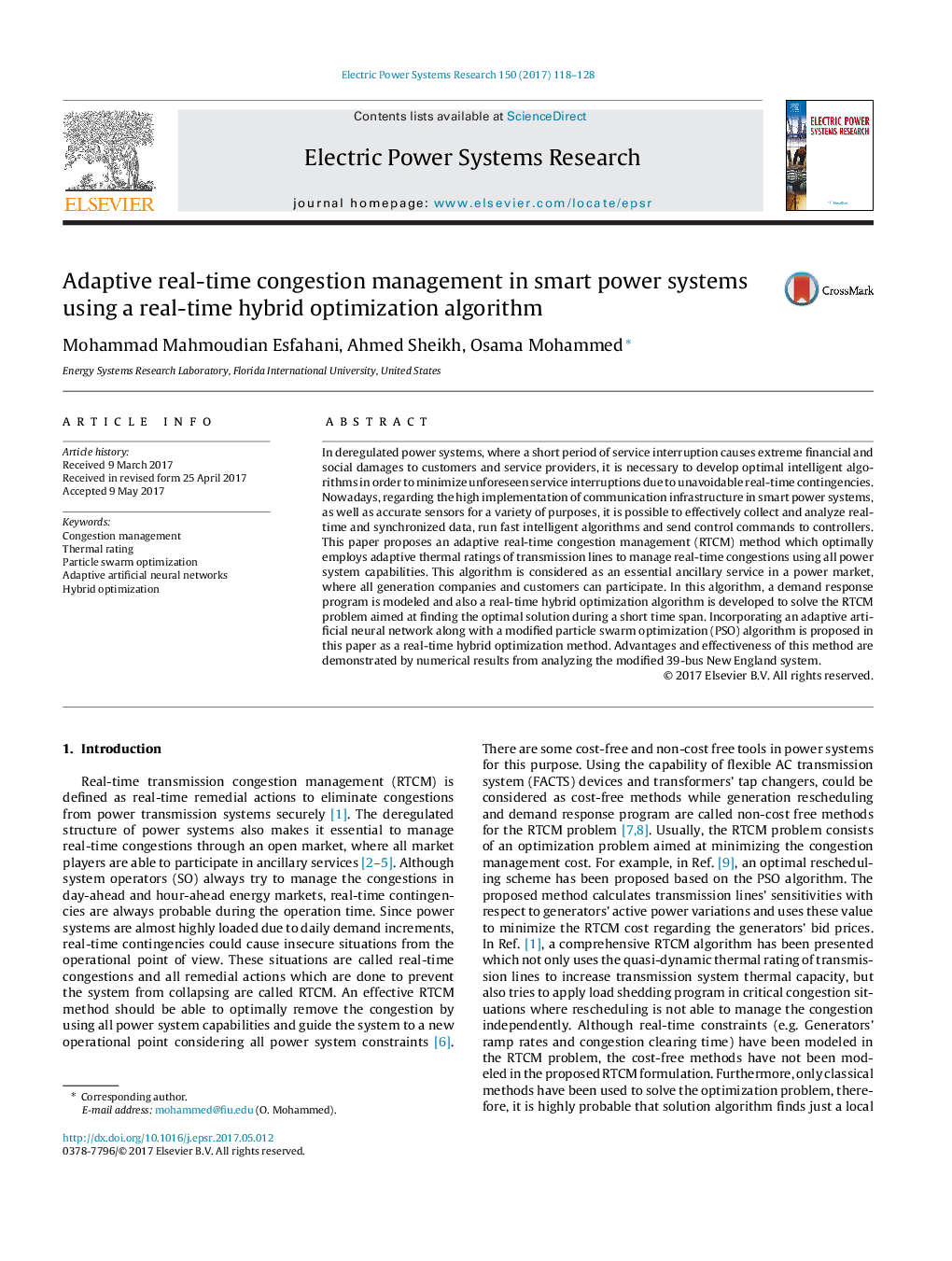| Article ID | Journal | Published Year | Pages | File Type |
|---|---|---|---|---|
| 5001050 | Electric Power Systems Research | 2017 | 11 Pages |
Abstract
In deregulated power systems, where a short period of service interruption causes extreme financial and social damages to customers and service providers, it is necessary to develop optimal intelligent algorithms in order to minimize unforeseen service interruptions due to unavoidable real-time contingencies. Nowadays, regarding the high implementation of communication infrastructure in smart power systems, as well as accurate sensors for a variety of purposes, it is possible to effectively collect and analyze real-time and synchronized data, run fast intelligent algorithms and send control commands to controllers. This paper proposes an adaptive real-time congestion management (RTCM) method which optimally employs adaptive thermal ratings of transmission lines to manage real-time congestions using all power system capabilities. This algorithm is considered as an essential ancillary service in a power market, where all generation companies and customers can participate. In this algorithm, a demand response program is modeled and also a real-time hybrid optimization algorithm is developed to solve the RTCM problem aimed at finding the optimal solution during a short time span. Incorporating an adaptive artificial neural network along with a modified particle swarm optimization (PSO) algorithm is proposed in this paper as a real-time hybrid optimization method. Advantages and effectiveness of this method are demonstrated by numerical results from analyzing the modified 39-bus New England system.
Related Topics
Physical Sciences and Engineering
Energy
Energy Engineering and Power Technology
Authors
Mohammad Mahmoudian Esfahani, Ahmed Sheikh, Osama Mohammed,
